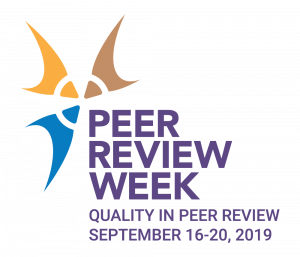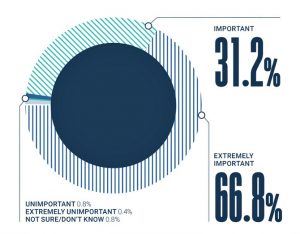International Peer Review Week 2019
Experiences of WUR researchers and Global Peer Review State
This blog contains outdated information. Publons no longer exists as a separate platform, the peer review profiles have been placed on the Web of Science Platform.
International Peer Review Week
 Next week is international Peer Review Week! This week celebrates the essential role that peer review plays in maintaining scientific quality. Lots of activities take place online, on social media and at events across the globe.
Next week is international Peer Review Week! This week celebrates the essential role that peer review plays in maintaining scientific quality. Lots of activities take place online, on social media and at events across the globe.
Wageningen University and Research adds to the Peer Review Week with this blog. WUR researchers inform you about their experiences with Publons – a platform that helps you to record and showcase your peer-reviewing activities. Furthermore, this blog describes interesting facts about the global state of peer review.
More information on how to reward your peer-reviewing contributions are presented in this blog.
Researchers’ experiences with Publons
At the moment about 150 WUR researchers have a profile on Publons that contains at least one review activity. Two of them have been interviewed: Yvonne Wientjes, researcher at Animal Breeding and Genomics, and Ellen van Loo, Assistant Professor in Marketing and Consumer Behaviour. Both are enthusiastic about the possibilities of the platform. They have been using it in their careers already: Yvonne referred to her peer reviewing profile when successfully applying for a Veni grant and Ellen when applying for her tenure track at WUR.


Yvonne Wientjes Ellen van Loo
They both emphasise that it is easy to keep a record, which can be done in various ways. Yvonne mentions: “you can for example just forward the ‘thank you for reviewing this paper’ email from the editor to Publons and then the review gets stored on your account automatically”.
Publons may be interesting for all researchers, especially for those in their early-career or tenure track
Ellen states that Publons may be interesting for all researchers, but especially for those in their early-career or tenure track. She wonders why only a small number of WUR researchers have a Publons profile containing their peer review activities. Coming from Ghent, many of her colleagues in Belgium have a Publons profile. “It appeared to be very useful when one of my friends had to demonstrate her peer reviewing activities when applying for her tenure in the United States”.
Ellen also mentions that Publons has recently added a new feature, enabling researchers to get recognition for helping their supervisor: “This may be attractive especially for graduate students or post-docs; now they can also be recognised for their effort”.
Global state of Peer Review
Clarivate Analytics (owner of Web of Science) and Publons have investigated the current global state of scholarly peer review. It is the first time that cross-publisher data on peer review has become available at this scale, with more than 11.800 responses.
At first the question ‘how important peer review is to researchers’ has been answered. You can find the answer in the figure below.

Source: https://doi.org/10.14322/publons.GSPR2018
Other interesting facts in the report are:
- The median time spent writing a review is 5 hrs.
- The median number of days needed to complete a review is 16.4 days.
- The global demand and supply for peer review are not evenly matched. For the Netherlands the ratio between demand (submitted manuscripts) and supply (completed reviews) is about 1,5.
- Incentives matter: greater recognition and career incentives to peer review will have a positive impact on the overall efficacy of the peer review process. 84,8% of survey respondents think institutions should more explicitly require and recognise peer review contributions.
- It is difficult to measure review quality. An (admittedly weak) indicator is the review length, on average the length of a review report is 477 words. Increasing Journal Impact Factor is associated with longer reviews.
More information
Contact the library if you have any questions or would like to receive more information.
If you would like to learn how to review a manuscript you can follow the WGS course ‘Reviewing a scientific manuscript’. The course consists of both lectures and interactive sessions where challenges and examples of reviews will be discussed. Publons will be introduced in this course.
